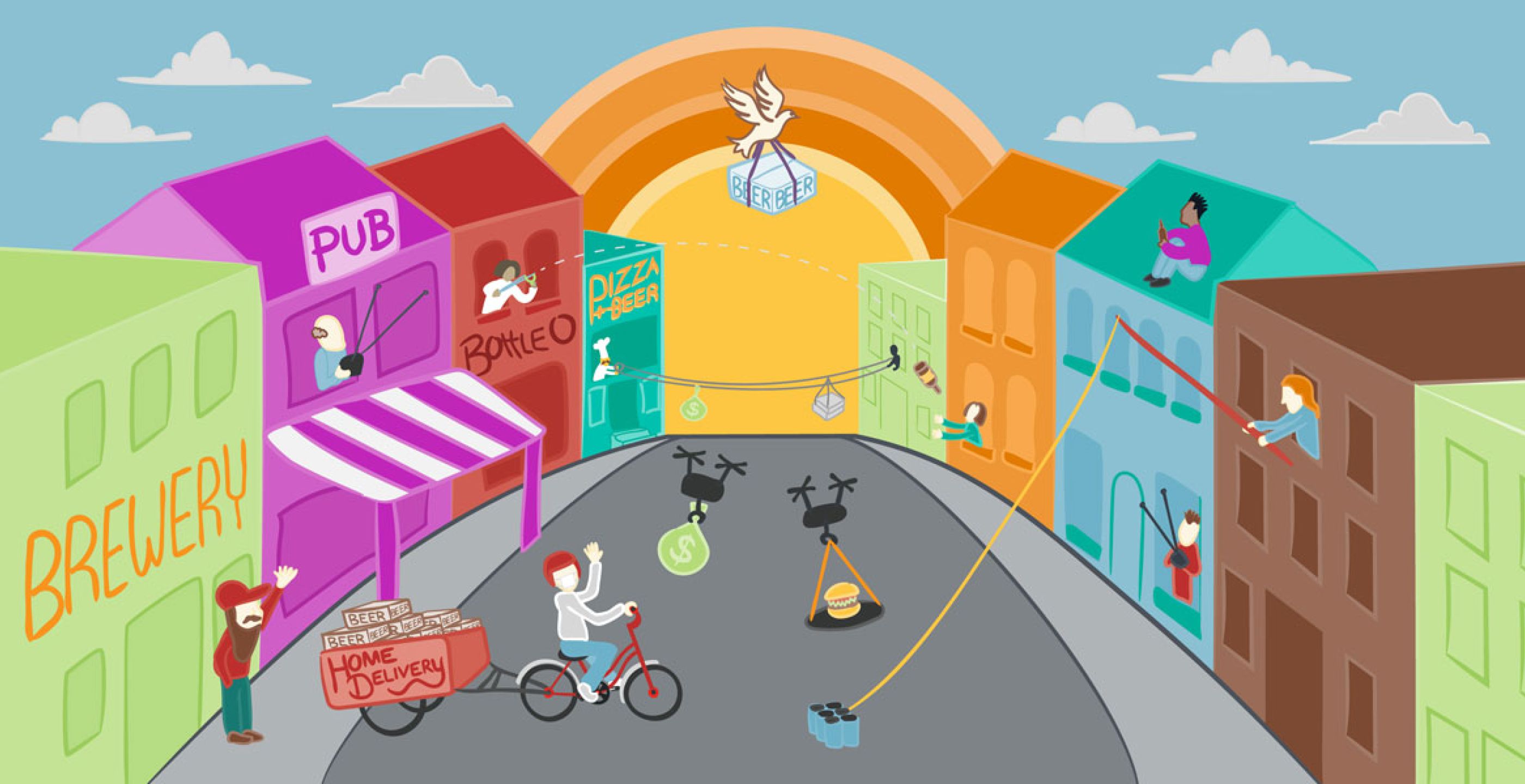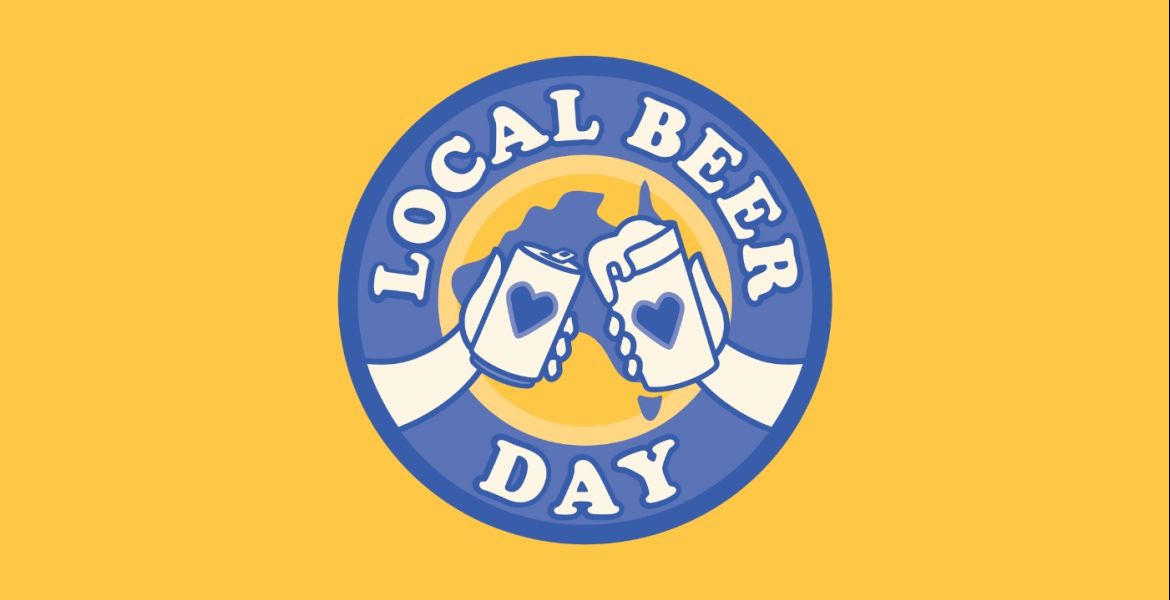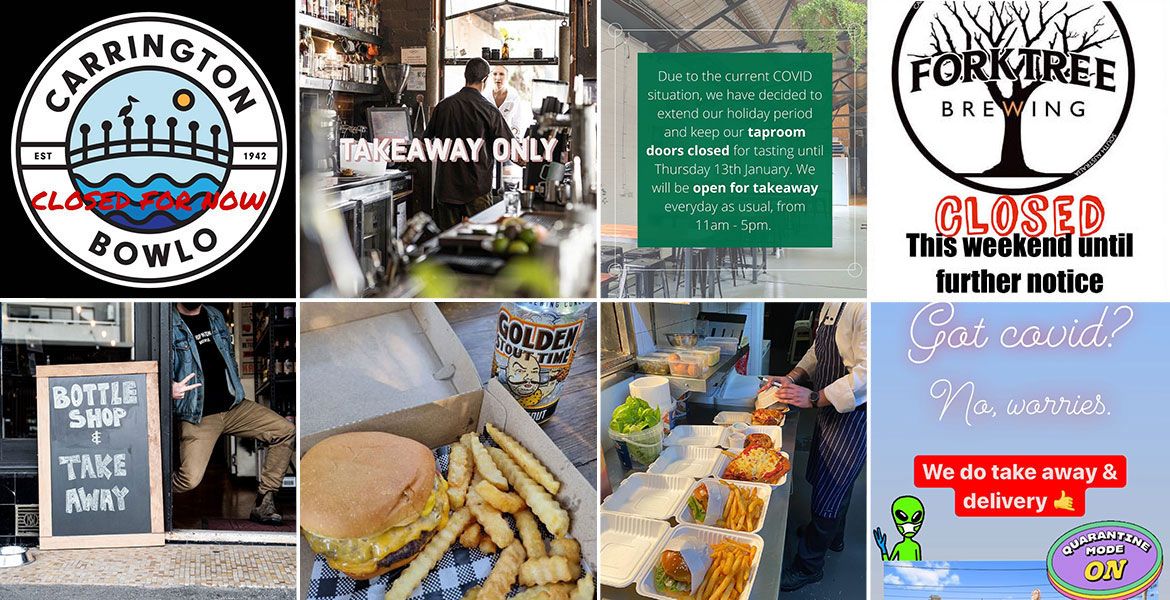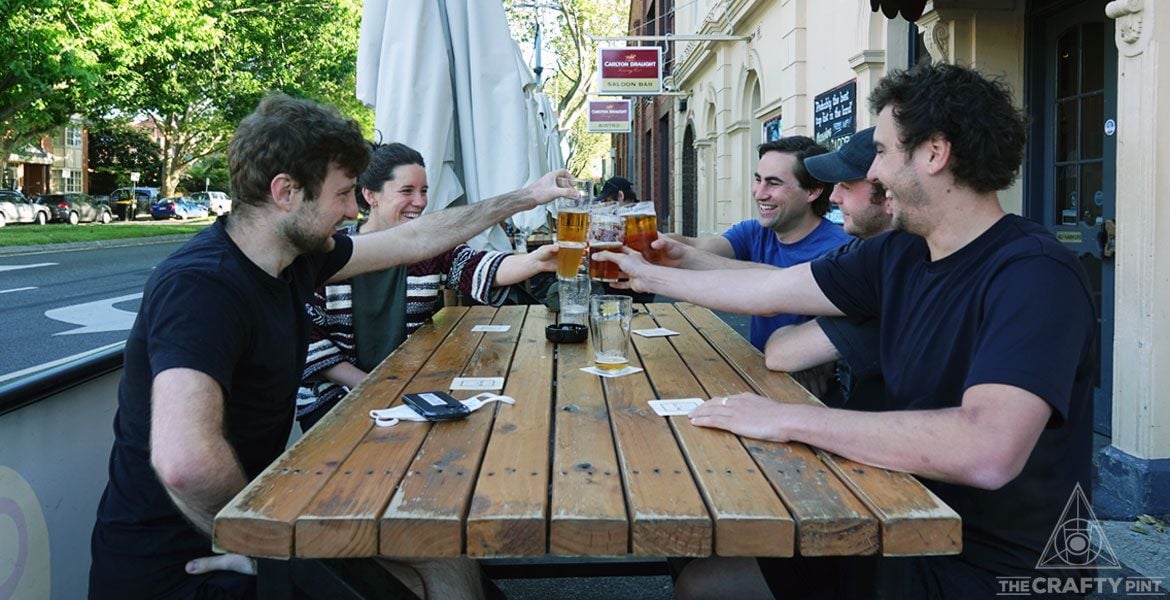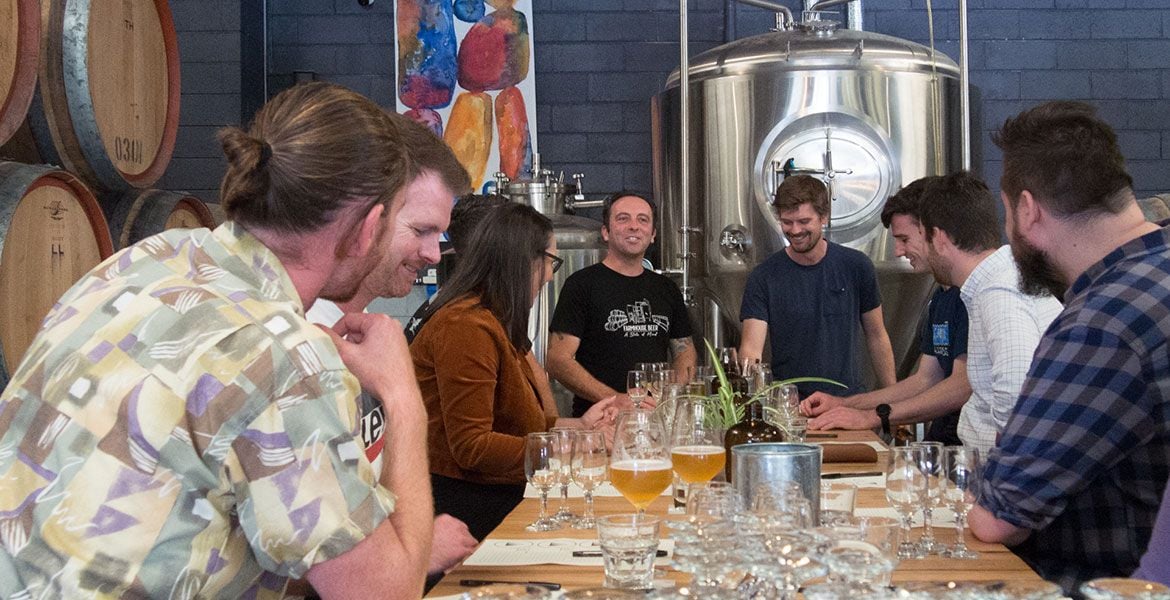Earlier this week, I went to update our event listing for High Country Hops, Bridge Road's annual celebration of the hop harvest in their region of Victoria, after it was cancelled.
I typed "high" into the page where we create events and underneath the entry for High Country Hops appeared one for the High Country Comeback Event on February 2; six weeks on from the community rallying to support bushfire-impacted businesses and here we are facing another, this time global, crisis.
While the headlines surrounding COVID-19 tend to be grabbed by rising death tolls, the danger to the elderly, plummeting stock prices and grounded airline fleets, the beer industry and the hospitality and events industries of which it's an integral part – not to mention associated tourism businesses – face a monumental threat too.
The worlds of beer, hospo and events might lack a big name on a par with, say, Qantas upon which focus can easily be trained, yet the myriad small businesses within them employ – and reach – a far greater number of people and often play crucial roles within their communities.
So whether, as seems likely, a weeks-long shutdown takes place or it's more a case of "death by a thousand cuts", as Jade Flavell of The Wheaty brewpub in Adelaide puts it, there is a fight for survival looming – on a micro and macro level – which could impact tens of thousands of people across the country.
It's a challenge like no other in recent history, too. Chris Hodges, owner of The Cherry Tree in Cremorne and with a history in the Melbourne hospo scene that stretches back decades and includes running the iconic GB Hotel in Richmond, says it can't be compared to past events such as the GFC.
"When times are tough, people tend to drink more," he says. "This is completely unique because people are probably scared of going out and probably will be told they can't go out.
"This is a whole new experience."
It's such a fast-moving situation that, as I'm writing these words, the Federal Government has announced a ban on social gatherings of more than 100 people, instantly reducing capacity at many venues and further heightening people's fears around visiting them. And, while no one is going to argue against the need to tackle and overcome the unique threat that COVID-19 poses, we do need to consider how the industry in which we are involved – as punters, workers, business owners – is going to survive the coming weeks and months intact.
At The Crafty Pint, we are switching our focus for the time being from being an operation that covers the local beer industry and the community that surrounds it to being one that's also fighting for the industry's survival. Under the banner #keepinglocalalive we plan to help people find ways to support their local breweries, venues and retailers and also provide guidance where we can. We've created a resource here where we'll be listing all the ways small businesses are looking to adapt in the hope you are able to help them through this challenging time.
For any small business, cash flow is essential. If you've got a chance to buy beer or merch from your local brewery, now would be a good time to do it. If you can't make it to your favourite pub or restaurant in the near future, consider buying a voucher or booking a spot for down the track and paying for it now.
Already, we're seeing creative and innovate ideas crop up across the country; if we all make it out the other side, such moments of inspiration might see us able to build an even better industry. But we need to reach that point first.
The Risks
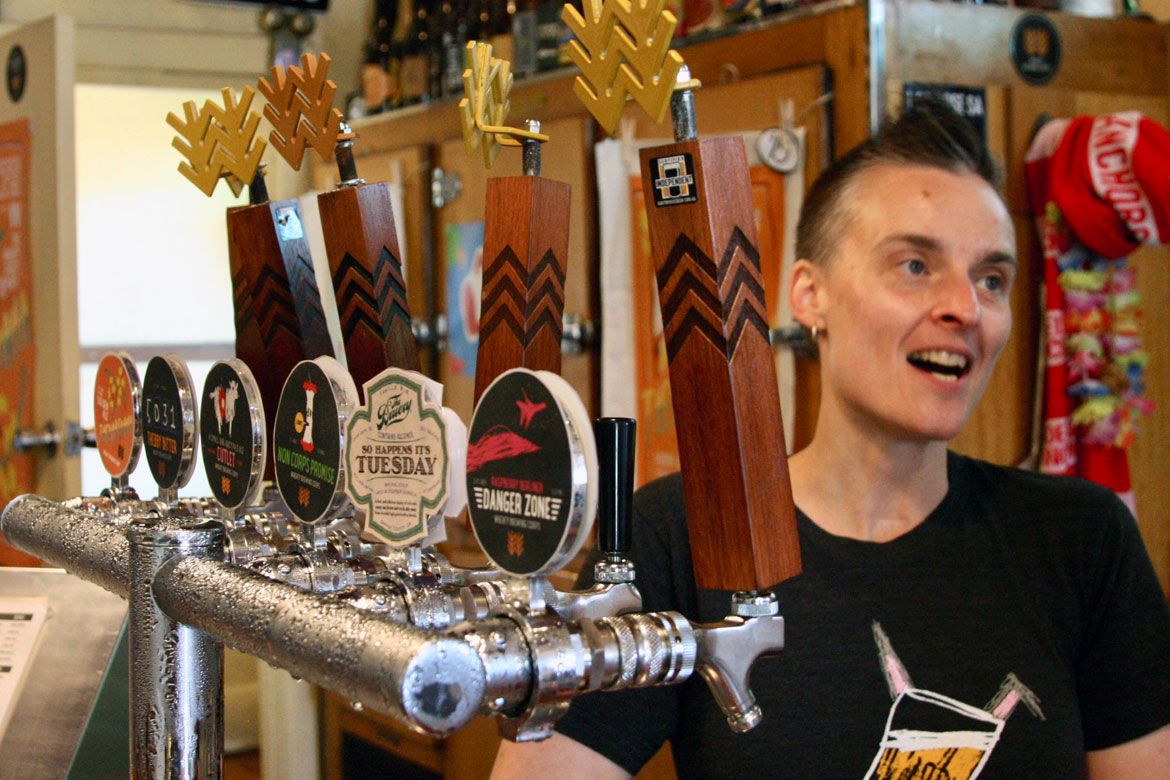
Already, the restrictions on social gatherings have forced the postponement or cancellation of events – major and otherwise – across the country, including headline festivals such as Good Beer Week and GABS. Some pubs, bars and restaurants have already decided to close, while the 100-person limit will be causing major headaches for larger operations. And it could get tougher still.
"Will we have to close the pub? Will we have restricted hours or will it be death by a thousand cuts where people don’t feel safe going out?" says Jade, who also runs the Wheaty Brewing Corps at the rear of her Thebarton institution and has already had bands cancel gigs.
"The fear has certainly spread; there’s an eeriness about it. There’s a level of panic and then we’ve got punters rocking up like they always have.
"In a sense it’s an existential threat to the hospitality and brewing industries – as well as arts and culture. It’s going to potentially have some pretty long-standing effects, depending on how long it goes on for."
Pete Philip, co-owner of Sydney's Wayward Brewing Company and current chair of the Independent Brewers Association (IBA), has similar concerns over the future in the face of the pandemic.
"[The IBA directors] all run businesses so we are deeply invested in figuring this out as to what the potential result is going to be," he told The Crafty Pint. "I’ve done forecasts of what the best case and worst case looks like and even the best case is pretty devastating while the worst case is absolutely frightening.
"[In the worst case] I’m not sure Wayward would survive and I’m not sure anyone who doesn’t have deep pockets and understanding shareholders would survive, because if this lasts six months then most of these businesses will need between a quarter and half a million dollars just to continue to pay their people and pay their rent."
He says they're working on the assumption there will be a 30 day lockdown on all hospitality at some point, similar to the conditions being imposed in countries in other continents. In such a situation, the reliance on takings at taprooms – which have played such a big role in changing the face of drinking culture in Australia – in keeping businesses running could have serious impacts.
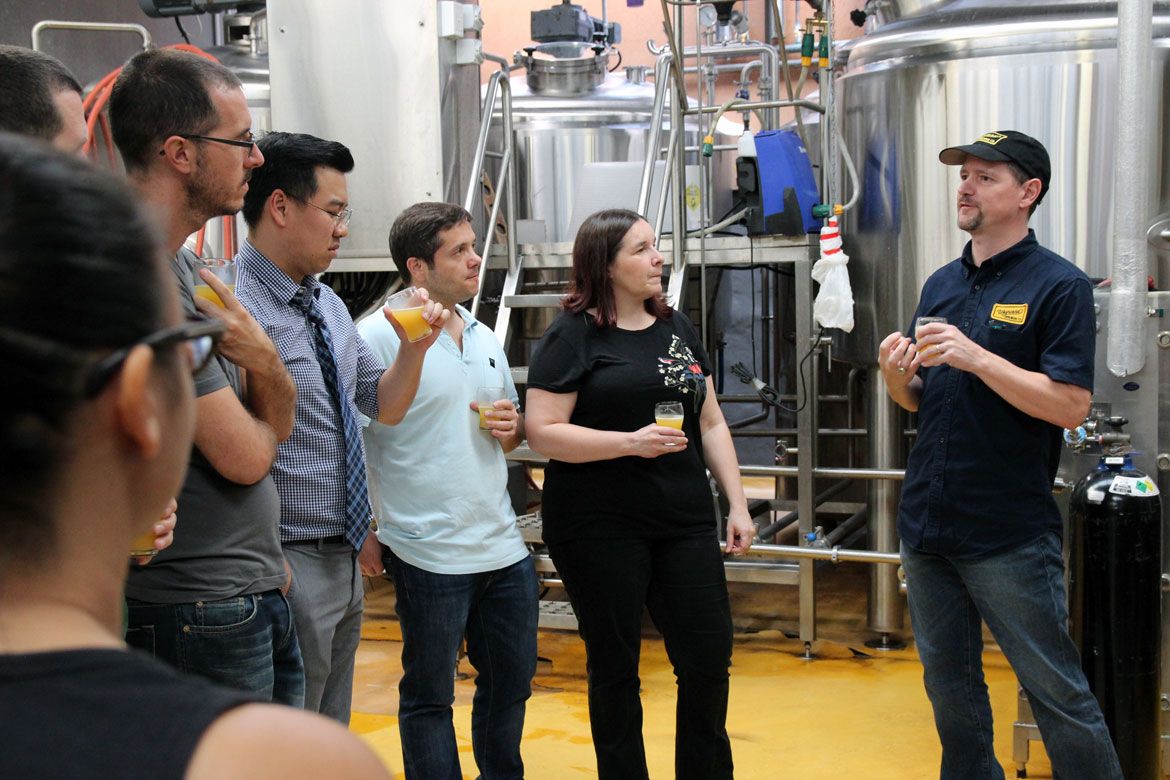
"Often it’s the taproom that’s carrying the business," he says. "If that revenue goes we still have rent to pay. Our workforce is casual orientated and these people aren’t going to be getting shifts so there needs to be a rescue package for hospitality workers so they can claim central payments or there's a risk they’ll be out of home.
"On the other side, keg sales are going to be down. If that part of the business dries up it just leaves retail trade and packaged product, which is a big question mark too."
For Jade, the length and severity of the measures that need to be taken to flatten the curve and, ultimately, defeat the pandemic will define how the industry looks in the future.
"If it’s a few weeks then most people will probably be fine," she says. "Communicate with bands and consumers and suppliers. If there are staff members doing it tough over that period then help out however you can.
"The same with suppliers: if you are struggling to pay a bill then have a chat and ask if you can make part payment. Make people aware of what’s going on.
"If [any lockdown] is one month or more it starts to become critical. Mortgage payments come in and they’re thousands of dollars a week and you can only survive so long. Then you need to look at mortgage freezes or excise relief or government support.
"There’s some big, fundamental questions about business survival and so many variables. You have to reassess every day and talk to your staff: this is what we are doing. What are you doing? How can we get through this together? Expect to be closed for a period. Expect to be quieter."
Surviving
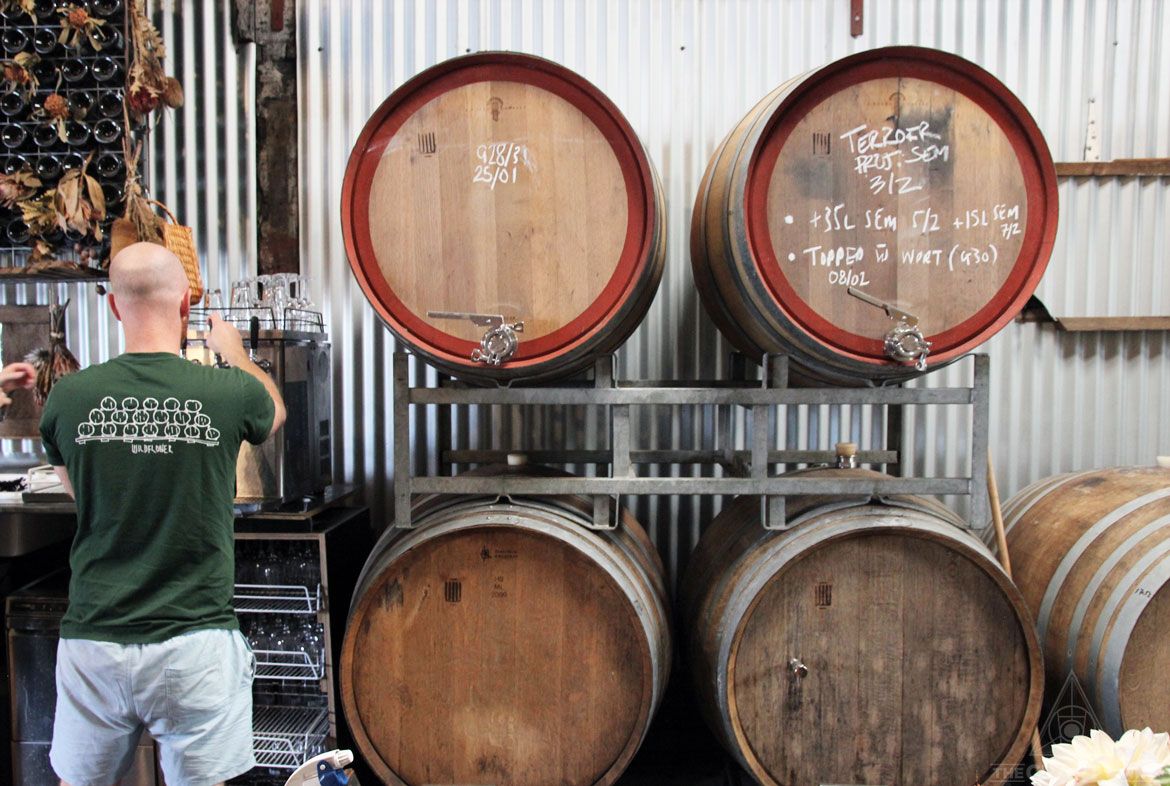
“I think our industry is full of amazing creative people who are going to have creative solutions to this really crappy situation,” says Topher Boehm, co-owner of Wildflower, who have already taken the decision to close their cellar door until Easter at the earliest and launched a "Collect a Wildflower" option to their website.
“We’re community based and we’re in touch with our customers on a really quick feedback cycle and we can adapt. Look at the way we can bring new styles into existence so quickly and find new ways to market and sell beer.”
Certainly, beyond the steps those venues who remain open have taken around hygiene and sanitation, around keeping their staff safe and providing as much advice and hand sanitiser as possible to customers, we're already seeing such creativity and innovation.
At The Cherry Tree, they'll be using their canning machine to package tap beer so they can offer local deliveries, including their pizzas, while they're looking to take their weekly trivia online so people can play at home. Jade is considering packaging Wheaty Brewing Corps beers for the first time ever. At Wayward, they've started making their own hand sanitiser and are offering it free with any purchase of a carton from their cellar door.
Various home delivery and "click and collect" options are being set up by businesses across Australia. People are encouraged to buy vouchers for their favourite venues they can use later on. Those who've bought tickets for cancelled gigs are asked to consider not requesting a refund and viewing it instead as a donation to a band that potentially won't be able to gig – at least in the traditional sense as some are offering online performances already – for some time. The IBA has put together a "Virtual Indie Beer Showcase" you can join online later this week in the absence of the real event.
"This will be a chance for the online community to come to the fore," Chris says, while adding: "I’m hopeful that as the hysteria dies down people will realise they’re still going to need to go outside."
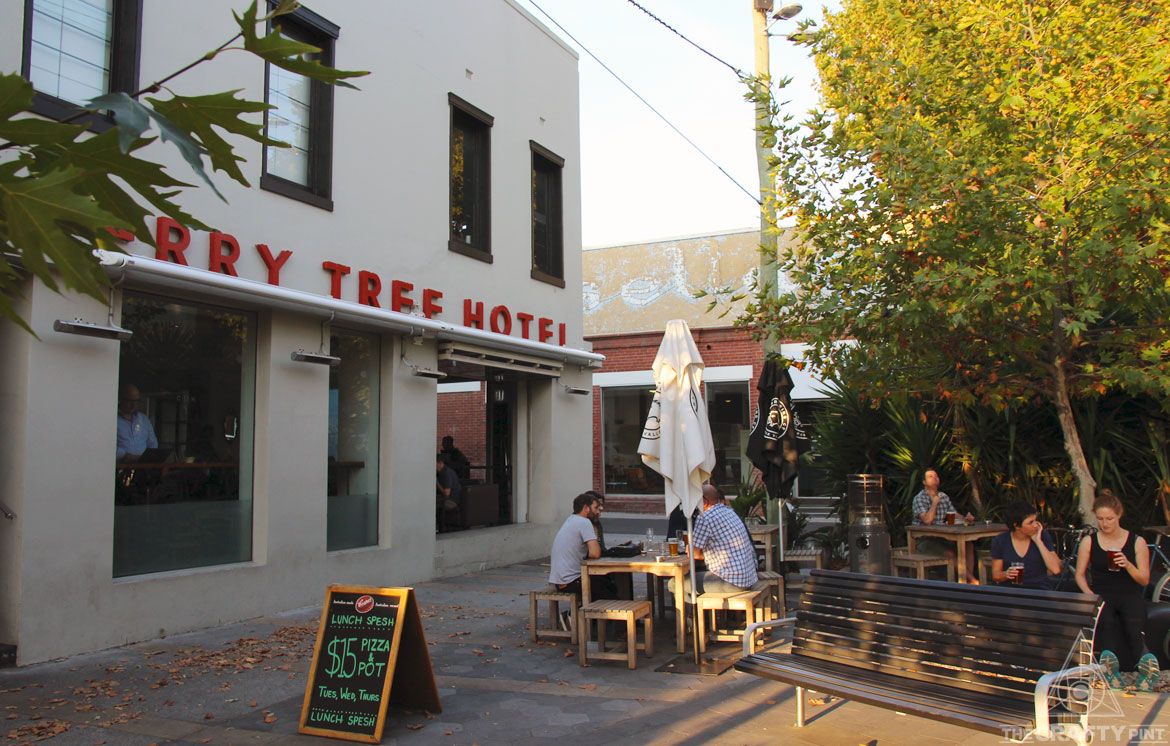
It's a time of great uncertainty, with advice often changing hourly and seemingly quite contrarian in nature, too. As such, there's no "one size fits all" solution. Of their decision to close early, Topher says it was driven by the fact they didn’t want to risk the health of their own team or their community.
“We have a very small team and we’re very much all family,” he says. “While the risk might remain low at the moment for the virus, the situation is changing so quickly.
“We also want to make sure our community is healthy and doing the right thing.”
With family members who work in healthcare, he also felt it was important for everyone to take steps to ensure coronavirus doesn’t strain the medical system.
“It’s pretty clear to me that the draw on resources that they’re going to have if we all don’t help flatten the curve of the spread is going to be dramatic.”
On the flipside, at the time of writing the vast majority of breweries, pubs, bars and restaurants remain open, albeit with changed circumstances. For Jade, it's not just a business decision to remain open as long as they are allowed, but something that runs deeper.
"Pubs have had a pretty special place in Australian culture. Whatever else is going on, you can always go to your local – it’s always there," she says. "It would shake a lot of people up to know that their local is closed. The Wheaty has never been closed other than for planned renos since it opened in 1923.
"Historically, pubs have been OK [in tough times] because people always want to go to a pub to commiserate and celebrate or catch up with their mates. It’s a pressure release valve, an essential community space that performs a lot of functions and plays a big part in people’s lives. People can find comfort and very real and practical support in a pub, from being out around other people and listening to music; it can be a very democratic and safe social space.
"This could make them not safe places and that’s a really interesting thing. It’s a real fine line. One of the problems if it goes on too long is social isolation which can pose a threat to some people – isolation at what cost and for how long? How are we going to look after them?"
The Future
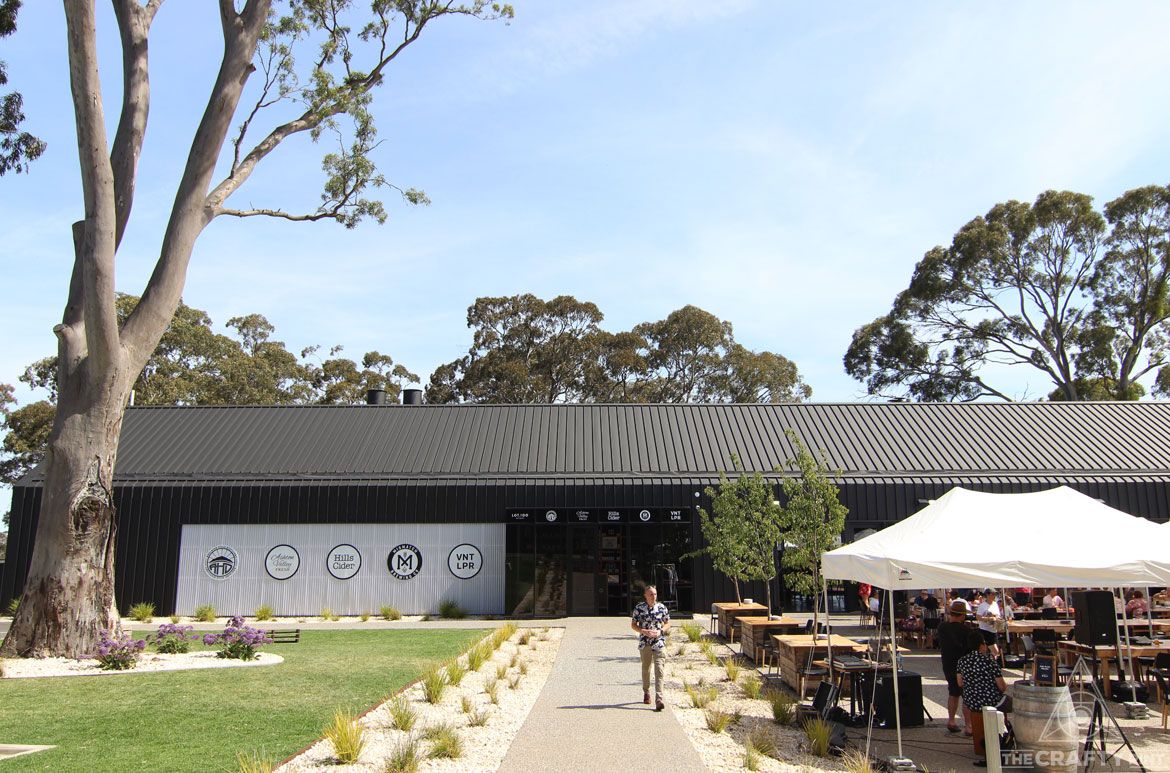
Whether it's the business owner fretting about their very survival, the casual employee worried they'll be the first casualty in straitened times, or someone who relies on regular contact with friends at their local venue for comfort and support, these are going to be tough times in more ways than one. From the risk of contracting COVID-19 to very real financial worries to the mental health challenges of dealing with a situation unlike anything we've experienced in our lifetimes, it's a time we'll need to come together – even if we have to stay apart – to support one another.
Hopefully, there will be greater government support for impacted businesses, industries and individuals. Just this week, Peter wrote to the Prime Minister, Treasurer and other politicians requesting meetings to discuss a survival package for independent breweries and is hopeful the IBA will receive a good hearing on the back of ongoing advocacy work.
The hospitality union Hospo Voice and the wider trade union movement have called for the Federal Government to bring in two weeks paid leave for casual workers affected by the pandemic. And you can view the commitments the United Workers Union is calling for from employers and government here.
The IBA plans to get behind the Keeping Local Alive campaign, with buying local and independent being an easy way for people to support their small, local businesses.
"Even if you’re a mainstream beer drinker, try to find an independent brewery’s beer that suits your taste profile," Pete says. "There are lots of really great independent brewers making fantastic lagers that aren’t 'craft'.
"The silver lining is if we get a big campaign going we might convince and convert mainstream beer drinkers that support other independent businesses but perhaps haven’t previously found the beer for them."
Referencing the South Australian's #bookthemout campaign, which successfully encouraged people to visit the bushfire-impacted regions of Kangaroo Island and the Adelaide Hills to aid in their recovery, Jade says there is plenty of goodwill out there amid the fear. She, like Pete, also hopes people will remember how the arts, hospitality and food and drink industries rallied in support of bushfire-impacted communities and be prepared to support those now in danger of a different kind.
As she says, for many small towns, lose the local brewery or bakery or winery and a whole community can suffer.
"There’s a lot of goodwill around at the moment and no one really knows the best way to do everything. As long as customers and suppliers can see you are doing the best thing for everyone then people all cut people a lot of slack," she says. "Stay safe and sensible and don’t let panic overtake us.
"Where you spend your money always matters but now it matters more so make a point of going to your local independent, your small brewery or venue."
Looking outside the beer and hospo bubble, she has hope too.
"Everyone’s a socialist in a pandemic. People see sense in a safety net," she says, suggesting such moments can bring out the best – and worst – in people helping each other.
"If anything good comes of it that could be it: we come out being a bit more aware of the bigger picture and kinder and more socially responsible."
You can find our resource listing ways in which you can support small, local businesses here. If you would like to be added to the list, please get in touch. We're currently creating artwork and social tiles around the #keepinglocalalive campaign and will share it as soon as we have it ready. Rest assured we're moving as fast as we can!
Brewers can download a letter if they want to reach out to their local MP in support of the IBA's request. It asks for short-term excise relief and emergency funding in addition to other measures already requested in the association's budget submission.
These are difficult times for employees and business owners across the industry. Look after each other.
For more information or support surrounding mental health issues, you can contact:
- Beyond Blue on 1300 22 46 36
- Lifeline on 13 11 14
NB We have contacted Hospo Voice for this article and will update it once we have spoken to them.
Will Ziebell also contributed to this article.





